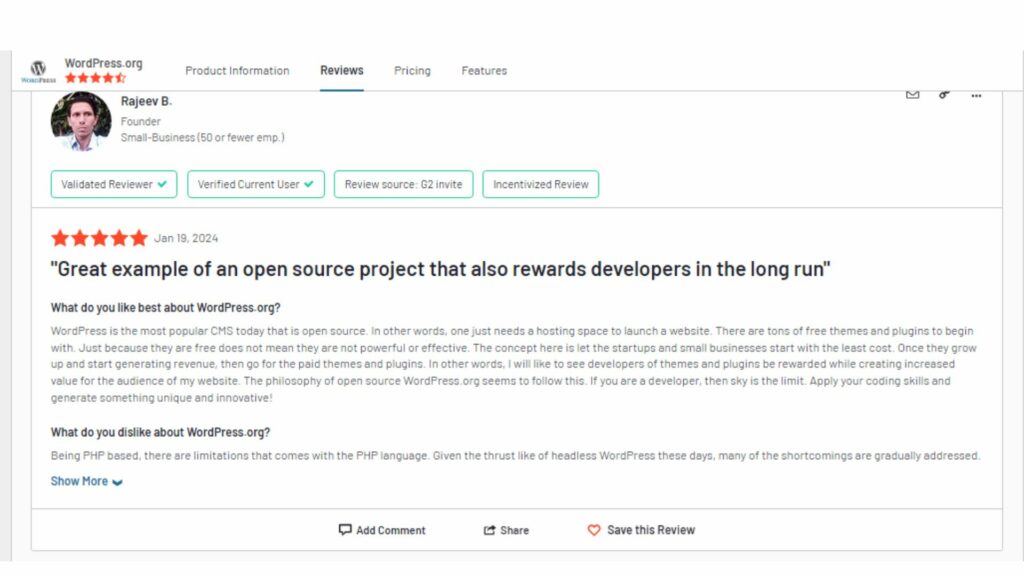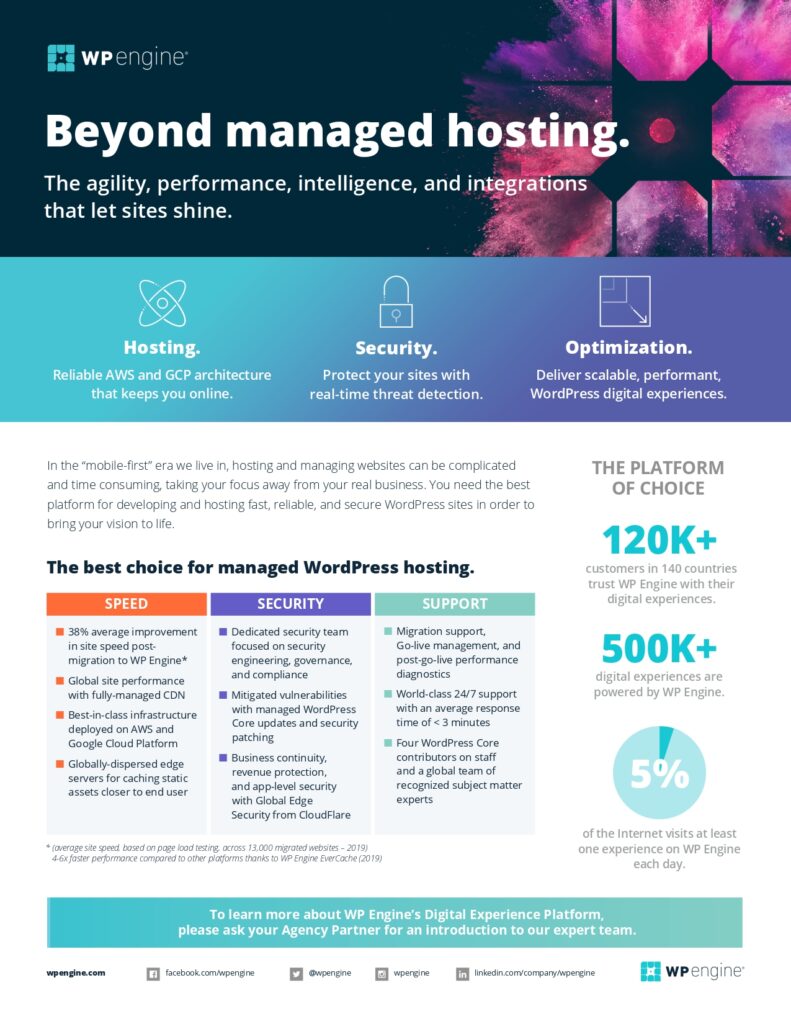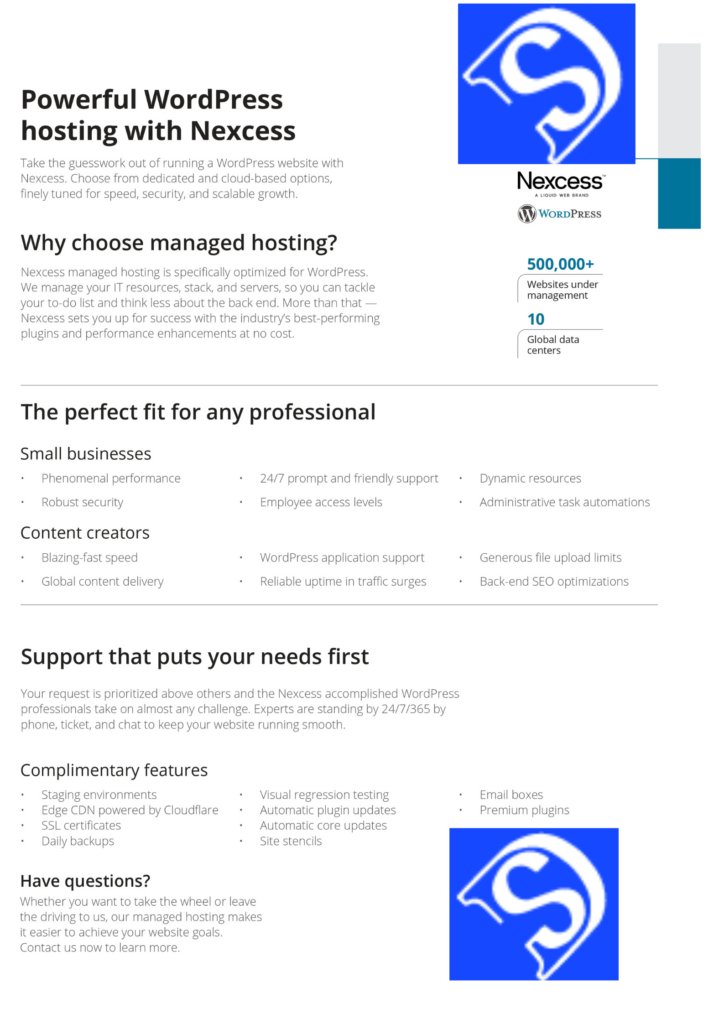
WordPress, an open-source Content Management System (CMS) from wordpress.org, has become a dominant force in the web development landscape. With its user-friendly interface, extensive customization options, and a massive community, it has empowered millions of users worldwide. In this article, we will delve into the advantages and disadvantages of using WordPress.org, covering aspects like costs, hosting, and SEO optimization. Additionally, we’ll explore the distinctions between WordPress.org and WordPress.com, and the benefits of managed WordPress hosting services provided by industry leaders like WP Engine and Nexcess.
Advantages of Using WordPress.org
- Open Source Flexibility:
- Advantage: Being open-source allows for endless customization, enabling developers to tailor websites according to specific requirements.
- Disadvantage: This flexibility might be overwhelming for beginners, requiring some learning curve.
- Abundance of Themes and Plugins:
- Advantage: WordPress.org boasts a vast repository of free and premium themes and plugins, providing users with diverse options for design and functionality.
- Disadvantage: The sheer number of choices can sometimes lead to decision paralysis, and poorly coded themes/plugins might compromise website performance.
- Community Support:
- Advantage: The large and active WordPress community ensures quick troubleshooting, support, and the availability of numerous tutorials and resources.
- Disadvantage: Reliance on community support may not always provide immediate solutions for complex issues.
- Cost-Efficiency:
- Advantage: The WordPress software itself is free, reducing initial costs. Users can choose from various hosting providers based on their budget and needs.
- Disadvantage: Additional costs may arise for premium themes, plugins, and professional support.
- SEO Optimization:
- Advantage: WordPress is inherently SEO-friendly, with features like customizable permalinks, clean code, and easy content management, contributing to better search engine rankings.
- Disadvantage: Over-reliance on plugins for SEO features can sometimes lead to performance issues.
WordPress.org vs. WordPress.com
- Hosting and Control:
- WordPress.org: Users have full control over their website, including choosing their hosting provider and customizing server configurations.
- WordPress.com: Hosting is provided by WordPress.com, limiting control over server settings and configurations.
- Customization and Monetization:
- WordPress.org: Full freedom to customize themes and plugins, and the ability to monetize the website through ads and other means.
- WordPress.com: Limited customization options for free plans, and monetization is restricted unless users upgrade to a premium plan.
- Domain Name:
- WordPress.org: Users can choose any domain name for their website.
- WordPress.com: Free plans have a subdomain (e.g., yourwebsite.wordpress.com). Custom domains are available with premium plans.
Managed WordPress Hosting
- Performance and Security:
- WPEngine, Nexcess: Managed hosting services optimize performance and offer robust security measures, including regular backups, malware scans, and firewalls.
- Automatic Updates:
- WP Engine, Nexcess: Automatic updates for WordPress core, themes, and plugins ensure the latest features and security patches.
- Scalability:
- WP Engine, Nexcess: These providers offer scalable solutions, allowing websites to handle increased traffic without compromising performance.
Our Partners in Managed WordPress Hosting: WP Engine & Nexcess
Conclusion
WordPress.org, with its open-source nature, extensive community support, and abundant themes/plugins, remains a powerful choice for web development. While there are costs involved, the flexibility, customization options, and SEO benefits make it a compelling platform. The choice between WordPress.org and WordPress.com depends on factors like control, customization needs, and monetization goals. Managed WordPress hosting services provided by companies like WP Engine and Nexcess offer optimized performance, security, and scalability, making them attractive options for those seeking a hassle-free hosting experience. As the WordPress ecosystem continues to evolve, it remains a frontrunner in the world of website development.
Last Updated on February 19, 2024 by Admin







Leave a Reply